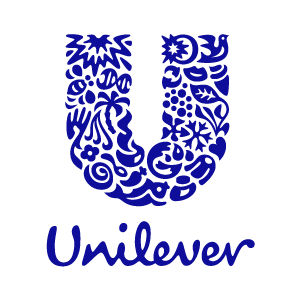Unilever
 Unilever is a global consumer products manufacturer that achieved EURO 50 billion turnover with over 173,000 employees in 2012 and its portfolio includes such famous brand names as Dove, Magnum, Knorr, PG, Hellmann’s and others (Annual Report and Accounts, 2012). Unilever specifies its purpose as ‘to make sustainable living commonplace’
Unilever is a global consumer products manufacturer that achieved EURO 50 billion turnover with over 173,000 employees in 2012 and its portfolio includes such famous brand names as Dove, Magnum, Knorr, PG, Hellmann’s and others (Annual Report and Accounts, 2012). Unilever specifies its purpose as ‘to make sustainable living commonplace’
Unilever has formulated its vision as “double the size of the business, whilst reducing our environmental footprint and increasing our positive social impact”. The mission statement of the company has been worded as “meeting the everyday needs of people everywhere”.
Unilever Organisational Stakeholders and their Objectives
The following table represents Unilever organisational stakeholders and their objectives
| Stakeholders | Objectives (expectations) | Achievement of objectives |
| Internal stakeholders | ||
| Employees | Adequate compensation and working environment
Effective organisational culture |
More than EURO 5,1 billion 173,000 paid to employees in 2013
A set of effective employee social protection programs |
| Managers | Career growth opportunities
Challenging working atmosphere |
Unilever Facebook global careers page attracted 110,000 ‘likes’ within 6 month of launch |
| Owners | Long-term growth of the company | Consistent profitability growth for numbers of years |
| External stakeholders | ||
| Government | Adherence of the company to rules and regulations
Payment of appropriate amount of taxes in a timely manner |
Unilever criticised for basing 26% of its subsidiaries in ‘tax heaven’ countries such as Costa Rica, Philippines, Guatemala, and Hong Kong (Ethical Consumer, 2012) |
| Suppliers | Long-term partnership in a mutually beneficial manner | Unilever possesses Fairtrade Certification for the majority of its products |
| Society | High levels of corporate social responsibilities | Development of Unilever Sustainable Living Plan
Commitment to reduce greenhouse gases by 50% by 2020 Development of Sustain Ability Challenge |
| Creditors | Effective management team
Adequate level of equity |
Consistent rise of profitability for a number of years
Increasing brand value |
| Shareholders | Long-term growth of the company | The full year dividend in 2012 increased to EURO 0,954 per share – 8% increase from 2011 |
| Customers | To purchase high quality products for low prices | Named top multi-category supplier in the Advantage Group Survey
Every day more than 2 billion consumers use Unilever products |
Unilever stakeholder objectives and the level of their achievement
(Data taken form Unilever Annual Report and Accounts, 2012)
Organisational Responsibilities and Strategies
Unilever has specific responsibilities towards each stakeholder group and the senior level management has devised long-term strategy in terms of meeting these responsibilities in an effective manner.
However, like in any other business, conflicts of stakeholder expectations are inevitable for Unilever. On one hand, shareholders as important external stakeholders expect more dividends and higher return on capital invested through minimising expenses.
On the other hand, society in general, and various environmental groups in particular expect Unilever to engage in Corporate Social Responsibility (CSR) programs, and commit to substantial financial investments in various sustainability programs. Therefore, it is the primary responsibility of Unilever strategic level management to achieve adequate balance in terms of addressing conflicting stakeholder expectations.
It is important to note that Unilever is fully responsible towards its impact on the society and this responsibility is addressed by the company CSR program that includes a range of initiatives in three directions: improving health and well-being, reducing environmental impact, and enhancing livelihoods.
Long-term strategy of Unilever is represented through ‘Winning with’ pillars that consist of the following principles: a) winning with brands and innovation, b) winning in the market place, c) winning through continuous improvement, and d) winning with people.
